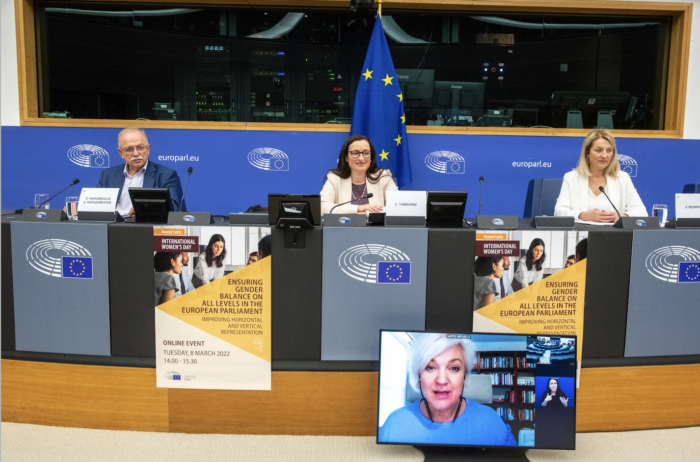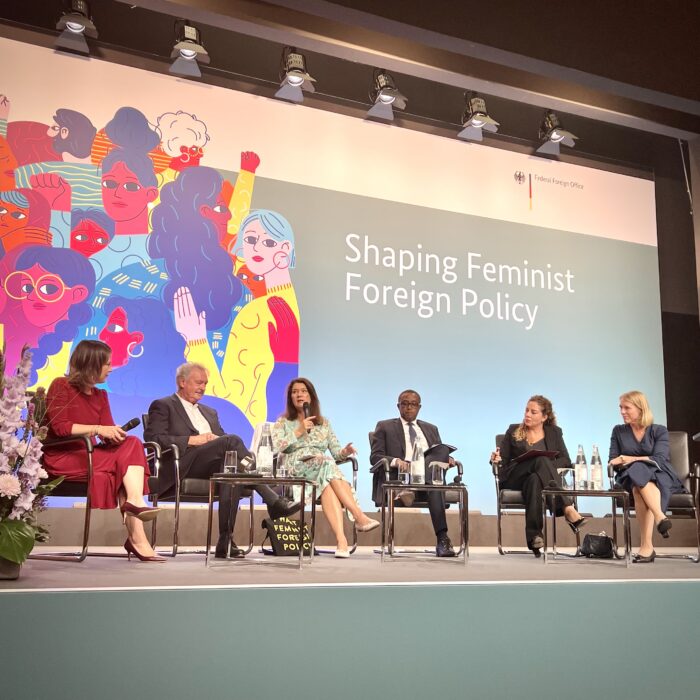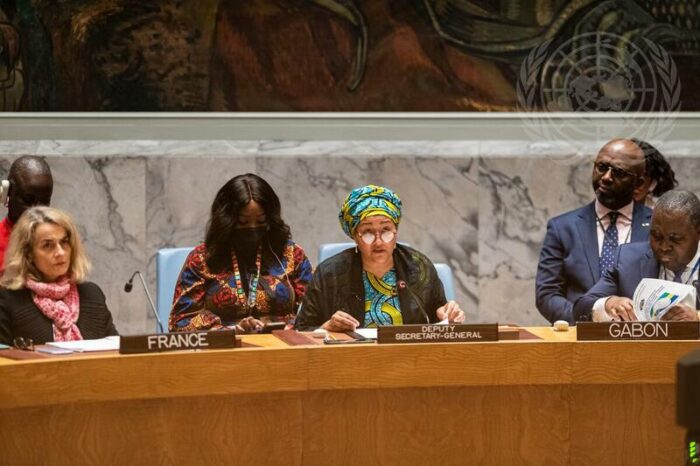The Progressive Post
A feminist foreign policy in an era of global crisis: from policy to impact

With Sweden, Canada, France, Luxembourg, Mexico, Spain, Libya, Germany and Chile adopting various forms of feminist foreign policies over the past decade, and with the growing interest of other countries in adopting similar policies, it is imperative to assess the importance of feminist foreign policy and its potentially transformative impact on women’s rights and human rights around the world.
As governments around the world gradually adopt the emerging concept of feminist foreign policy, we must examine the impact such a foreign policy framework can have on achieving its international development aims. We must challenge countries adopting a feminist foreign policy to rethink their approach to policy design and implementation. This is particularly critical because, while a feminist foreign policy is aimed at ensuring that women’s rights are prioritised in developing foreign policy responses to development issues globally, the societies where the impact of a feminist foreign policy is needed the most are the very societies where the policy is likely to face pushback in its implementation. Additionally, given that there are different ways of adopting and implementing policies, countries adopting feminist foreign policy must develop robust frameworks that will guarantee the desired outcomes and ensure sustainable impact.
Feminist foreign policy as a concept for fostering women’s rights and human rights globally has the potential to transform societies through well-thought-out policies, consultations, and cooperation between multiple stakeholders to advance more inclusive and equitable societies. It aims to create gender awareness and pursue a gender-sensitive foreign policy approach toward international relations and development.
Given that the concept of feminist foreign policy is at its nascent phase of development with several countries adopting various strategies for implementation, critics may argue that until such a time when the concept of feminist foreign policy is comprehensively developed to encompass multiple aspects of foreign affairs and is thus institutionalised, it will fall short of having a real impact on women’s rights in a sustainable manner. However, I consider that it is premature to call for a universal approach to impact assessment based on the level of institutionalisation of the various forms of the policy adopted by different countries. Although there has been significant progress in the institutionalisation of equality and the protection of women’s rights in certain parts of the world, the concept of feminist foreign policy is still evolving, with different dimensions to its design and implementation.
What impact can it make in the world today?
The main tenets of a feminist foreign policy as a progressive approach to foreign policy is that it challenges the traditional responses to issues such as women’s rights, conflict prevention and resolution, trade and development cooperation. Through the concerted efforts of governments, feminist foreign policy can therefore ensure the promotion of various gender-sensitive policies around the world. But to achieve any concrete results, a feminist foreign policy must set women’s rights and human rights as key priority areas in international cooperation and development.
Recent developments on women’s rights in the Islamic Republic of Iran have seen the regime of Ayatollah Ali Khamenei further undermine the rights and liberties of women through the violent implementation of a mandatory hijab law by the regime’s ‘morality police’. The arrest, torture, and subsequent death of 22-year-old Iranian Mahsa Almini in 2022 highlighted the plights of Iranian women and the need for international solidary in their fight for fundamental freedoms. We have also witnessed women’s right to education being stripped away in Afghanistan, where the Taliban regime imposed strict restrictions in December 2022 that ban women from attaining education in universities and from working in non-governmental organisations. The Taliban regime also mandates compulsory face covering, and has implemented gender segregation policies in public spaces. These policies have rolled back several years of progress in the fight for women’s rights and freedoms in both Iran and Afghanistan.
Although the two regimes have accused Western countries of attempting to impose foreign cultures on their citizens and have consequently restricted the inflow of humanitarian assistance that is intended to support women and several activists, the result has been significant international solidarity from several countries – which have either offered humanitarian assistance to victims or imposed sanctions on the regimes. These situations highlight the importance of feminist foreign policy and the impact it can make globally the enforcement of sanctions against regimes that perpetuate such violations against the rights of women.
Another area on which a feminist foreign policy can have a significant impact is the continuous violation of the rights and dignity of women and girls through female genital mutilation and through early and forced marriages, which have resulted for many years in the systematic abuse of women’s rights in several countries around the world. Today an estimated 120 million girls and women around the world are reported to have undergone female genital mutilation, and deaths from preventable causes related to pregnancy and childbirth are still on the rise. Through coordinated efforts, a feminist foreign policy can work with governments to eradicate such discriminatory social norms and harmful gender-based violence and ensure more equal social structures and the protection of women’s and human rights.
Yet while the adoption of feminist foreign policy is necessary, it is not sufficient in itself. Underpinning the idea that feminist foreign policies can make a difference in the promotion and protection of women’s rights is the question of approach. Indeed, a successful feminist foreign policy must be well-designed and responsive. For feminist foreign policy to make a meaningful impact on women’s rights and human rights around the world, progressives must pursue its aims by understanding the various conflicting interests, perspectives, and perceptions of change-driven foreign policy around the world.
Photo credits: Shutterstock.com/
In the context of policymaking, progressives must embrace these nuances and this diversity in sociocultural values, power dynamics, intersectionality and societal norms to effectively develop feminist foreign policy and its implementation strategies. We must ensure that feminist foreign policy does not reinforce the perception of a Western imposition of policies on other sovereign states. Indeed, this perception has led to recent pushback on such policies by certain nation states, particularly in the Global South. If this is taken into consideration, feminist foreign policy might stand a reasonable chance of securing buy-in from national governments and societies while achieving progress in the sociocultural, political and economic rights of women globally.
Progressives must recognise that feminist foreign policy encompasses much of our agenda to promote people-centred policies around the world. By adopting and promoting feminist foreign policy, we will spur the necessary action to foster women’s rights as well as other values such as justice, human rights and inclusive development. We must make the necessary commitments to turn our idea of a truly progressive world, which promotes women’s rights, into a reality. A win for women globally is a win for humanity as a whole.
Photo credits: Shutterstock.com/pcruciatti




